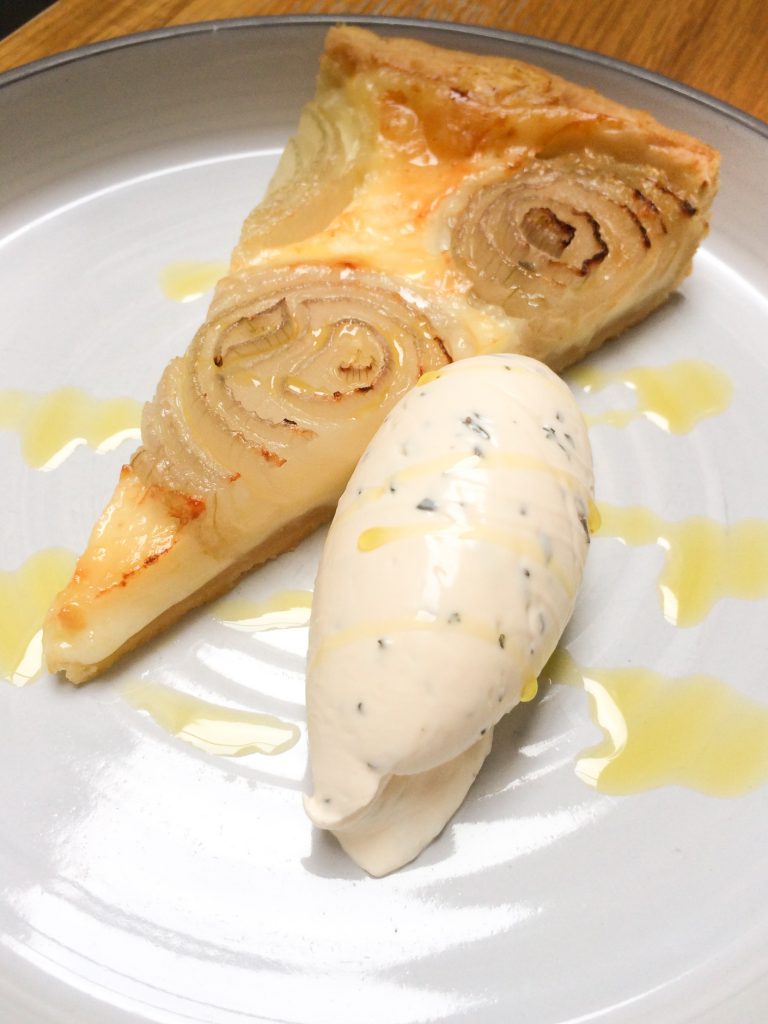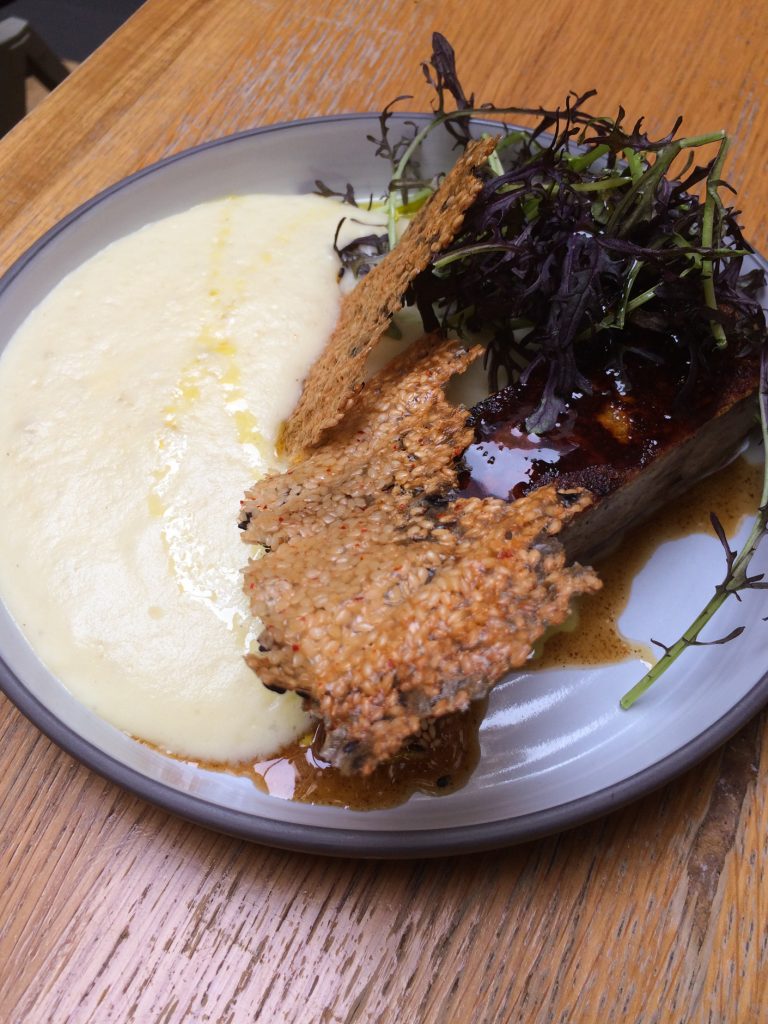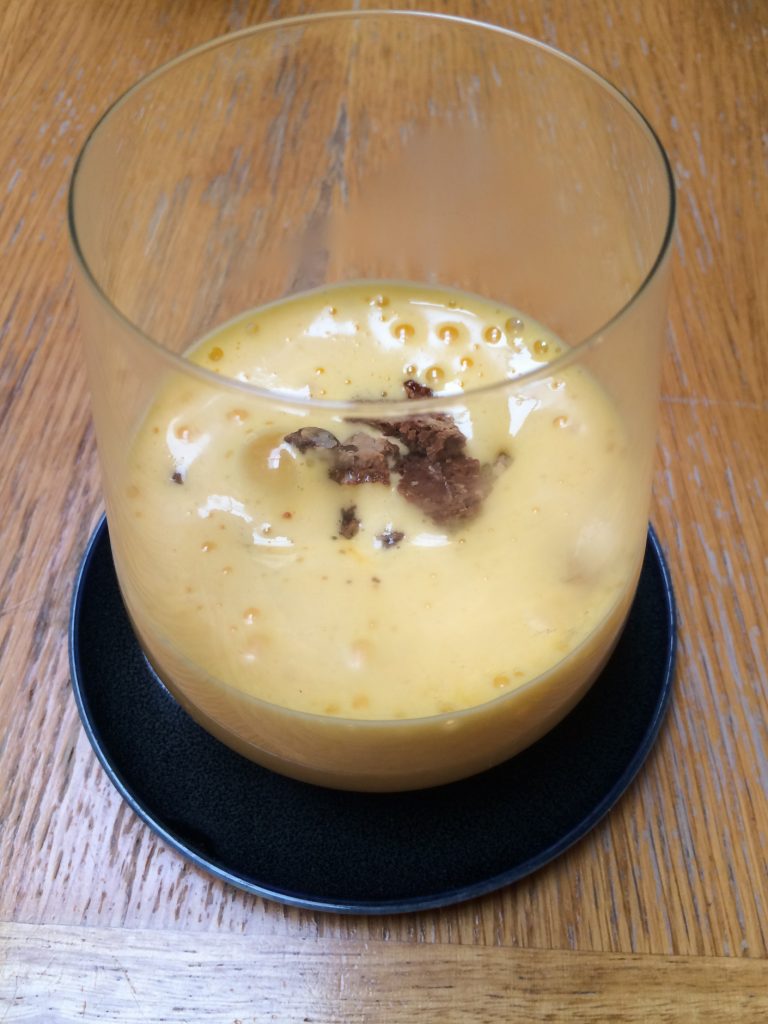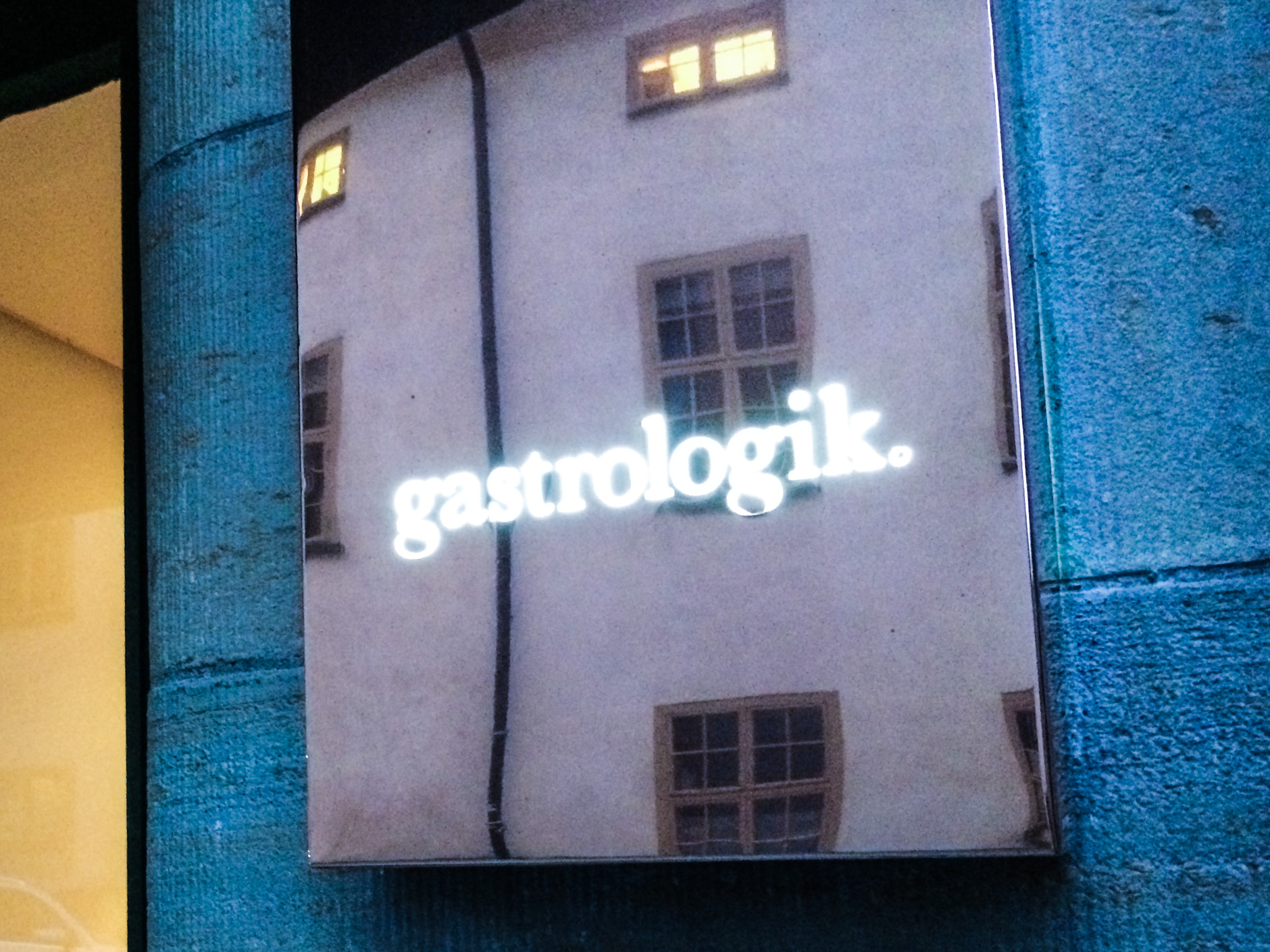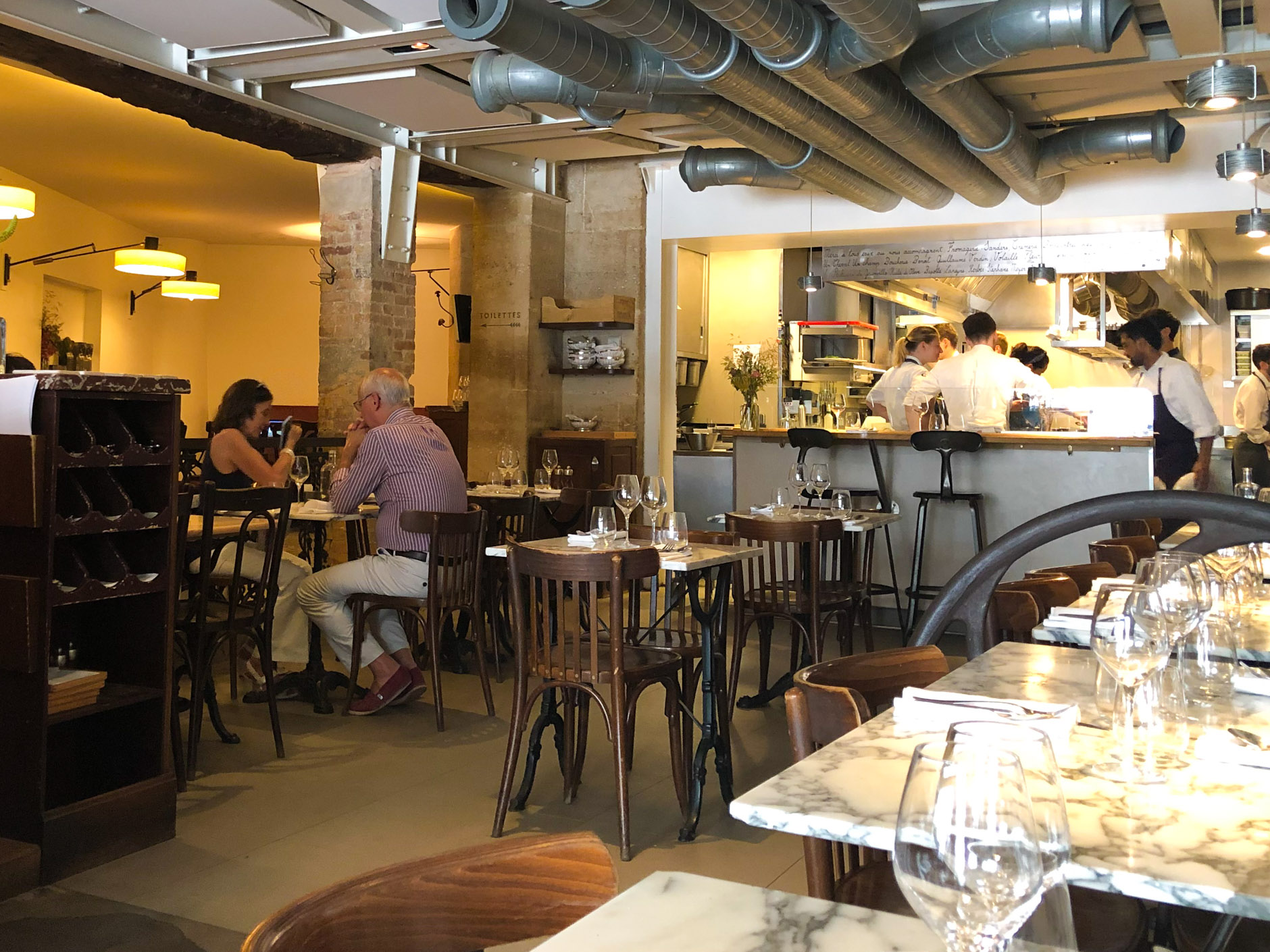I wrote off the mid-range dining scene in Paris a long time ago, but on each return visit I always wonder if I’ll find something that will prove me wrong. Stumbling upon a quiet courtyard in the quaint and bustling streets of the Marais, could Jaja be it?
Jaja is the brainchild of restaurateur Julien Fouin who pretty much dominates the 3rd and 4th arrondissements with his little empire of bistros. Originally opened in 2011, Jaja has had a mixed response amongst the locals. The name alone doesn’t exactly entice: on the one hand it is phonetically reminiscent of a goofy Star Wars character, whilst its literal meaning is the French slang word for table wine – what we would colloquially call “plonk” in English. Despite this, it pleases on many levels. Located betwixt a flamboyant shirt shop and an ice cream parlour, and just round the corner from La Belle Hortense (a quirky bookshop wine bar), it’s a surprisingly light and airy place with its own leafy courtyard and a glass roof over the main dining area. There is also the now ubiquitous exposed kitchen and an abundance of foliage. Mercifully, the tables are not all hemmed in like they usually are in Paris and it was pleasing to see spaces available for solo diners. I was greeted courteously and it was notably busy on a Monday lunchtime – though nearly all Parisian restaurants take Mondays off so it could’ve been attributable to that.
Jaja is a forward-thinking, progressive bistro and not shackling itself to the zinc bar and tobacco-stained traditions of yore
The literal reference to “jaja” is a classic magician’s misdirection as they actually specialise in good, natural wines. There’s a decent selection, mostly young (as natural wines can’t really have much age), and mostly French, as you’d expect, with some Portuguese and Italian curios on backing vocals. Interestingly, gin and tonic combos seem to be a thing here, as well as a short craft beer selection from Deck and Donohue, a microbrewery based in Montreuil. It’s a forward-thinking, progressive bistro this and not shackling itself to the zinc bar, steak frites and tobacco-stained traditions of yore.
The food has a simplistic self-assurance without any of the pretension that I’ve seen so much since ‘bistronomy’ took off, though still needs some refinement. Starting with a Roscoff onion tart, this didn’t strike me as a ‘restaurant’ dish that I would pay 10 Euros for – rather a tart grabbed from a nearby patisserie you might scoff between Metro stops – but the pastry work was undoubtedly spot on. It came drizzled in oil and served with a thick cream quenelle studded with herbs. The sweetness and acidity of the onions came through but a little seasoning wouldn’t have gone amiss. Similarly, the cream quenelle could’ve had more punch – if it was made with bolder herbs or replaced with a blue cheese ice cream or something, it would’ve elevated the dish further.
The star, for me, was the black pig belly with potato puree. This was one of the softest most unctuous purees I’ve ever had. When I’m old and can only eat through a straw, please give me this pomme puree. The pork belly was similarly soft and succulent with a crispy top, and the sesame crisp added some more variation of texture and a little nuttiness. The dish was presented by the chef himself, a big burly bearded bloke who looks like a pirate.
When I’m old and can only eat through a straw, please give me this pomme puree
For dessert, a Calvados Sabayon came with a pleasant pear compote and (deliberately) burnt pieces of white chocolate, but the dessert as a whole was too sickly sweet for my liking. Give that to a child and they would be bouncing off the walls from the sugar rush.
Still, it’s all satisfying food which isn’t overly fancy or wacky. The service, at times, felt a little lacking and whilst there was nothing major to complain about they did do that usual French thing of making it almost impossible to pay. I’ve never understood why this happens in Paris: it’s obvious you’ve finished your meal and you’re trying to make eye contact with the waiting staff so you can request l’addition, but they keep on ignoring you – a kind of real-time gastronomic ghosting. It seems no matter how ‘modern’ a French bistro tries to be, this will always be the case, and it always means the meal ends on a sour note. But still, politeness is the key. Unfortunately, not all diners see it that way: it was impossible not to notice an Anglophone family two tables away who were allowing their children to play on iPads noisily, made no attempt to speak French and even at one point clicked their fingers to summon a waiter. OK, it is difficult getting the waiter’s attention sometimes and we’re not all confident cobbling a few words of franglais together, but who in civilised society clicks their fingers?? You could almost hear Jean-Paul Sartre turning in his grave, telling us that Hell is Other Diners. This, of course, isn’t the restaurant’s fault but it does affect the ambience and is a reflection of the clientele attracted by the restaurant, so it’s still relevant. Despite occasionally frosty service, one thing you can usually be sure of about dining in France is that French people know how to behave when dining in public.
Overall, Jaja revises my opinion about modern French bistros. It’s not bad at all, and on a better day might have been wonderful.
3 Rue Sainte-Croix de la Bretonnerie
75004 Paris
France
by J A Smith


